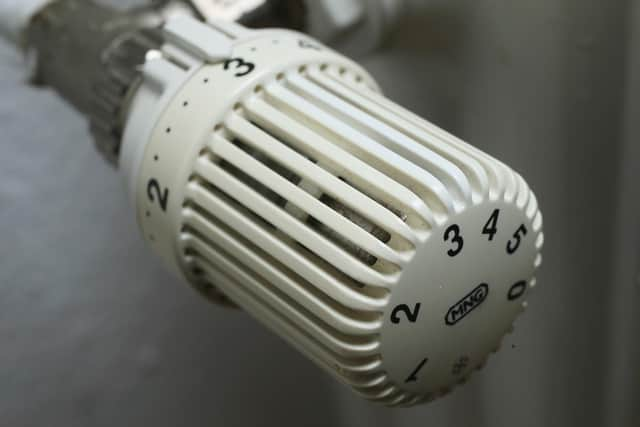The exact date you should turn your heating on has been revealed
This article contains affiliate links. We may earn a small commission on items purchased through this article, but that does not affect our editorial judgement.
and live on Freeview channel 276
Experts have used weather data to reveal the exact date you should be looking to dial your thermostat up – if you haven’t already!
Online heating specialists, BestHeating, has analysed Met Office data from the past five years to reveal how much longer we should refrain from turning their heating on for winter months, as well as providing advice for people to keep their bills low.
Advertisement
Hide AdAdvertisement
Hide AdOnce temperatures outside drop below 15°C the NHS advises to put heating on for health reasons, which means that in line with Met Office data, the date we can expect to use our heating is today, October 20.


From this date, temperatures aren’t expected to rise above 15°C for the rest of the year, although 2022 was a particularly warm year and saw temperatures of up to 23°C on October 29.
If we are to have similar weather this autumn, then it will be around November 2 until the boiler is required to work hard.
Jess Steele, heating technology expert at BestHeating, said: “Whilst there isn’t an optimum time to switch heating on, our research shows that once temperatures are below 15°C, usually in the middle of October, it is best to turn the heating on as we feel the chill more.
Advertisement
Hide AdAdvertisement
Hide Ad"By the end of the month, even the hardiest among us will have our heating on to keep warm as temperatures are predicted to drop further.
“If it is below 13°C outside then serious health issues can arise, especially in vulnerable people. With many worried about their finances, it can be tempting to hold off putting the heating on but be careful delaying this too long as this can hurt your body.
"For those struggling, we recommend contacting your local council or energy supplier as there are often grants and help available to keep you safe throughout winter.”
To help get radiators in good working order and keep bills as low as possible throughout the cold months, Jess has provided three essential pieces of advice:
Only heat the room you are in
Advertisement
Hide AdAdvertisement
Hide Ad“One of the simplest mistakes people make during winter is heating an unused space. Make sure to turn radiators off in rooms that are not in use such as bedrooms throughout the day.
"The one caveat to this is not to turn the radiators off in the room where the thermostat is located, or it could cause issues with the temperature of the rest of the home. Doing this will improve the boiler's efficiency, allowing rooms you are in to warm quicker and saving over £100 for heating if used daily.”
Turn the thermostat down by one degree Celsius
“Research shows that by reducing a home's temperature by a little, good savings can be made on energy bills. 20.8°C is the average thermostat setting in the UK, but 18°C should keep you comfortably warm throughout the colder months. This can save up to 10% on a fuel bill or an estimated £80. A clever way to assess if the heating is too warm is to turn the thermostat down by one °C and see how you feel.”
Choose the best times of day to blast the heating
“To keep bills low, be clever with when your heating is turned on. If the temperature is going to be lower than 10°C, set it to come on an hour before your alarm to take away the chill. If you are out all day, then do the same in the evening.
Advertisement
Hide AdAdvertisement
Hide Ad"Anyone with a Smart thermostat will be able to control their heating more easily, as they can make sure there is no wasted energy when out at work or shopping and can also set it so that they return to a warm house that is cost-effective.”